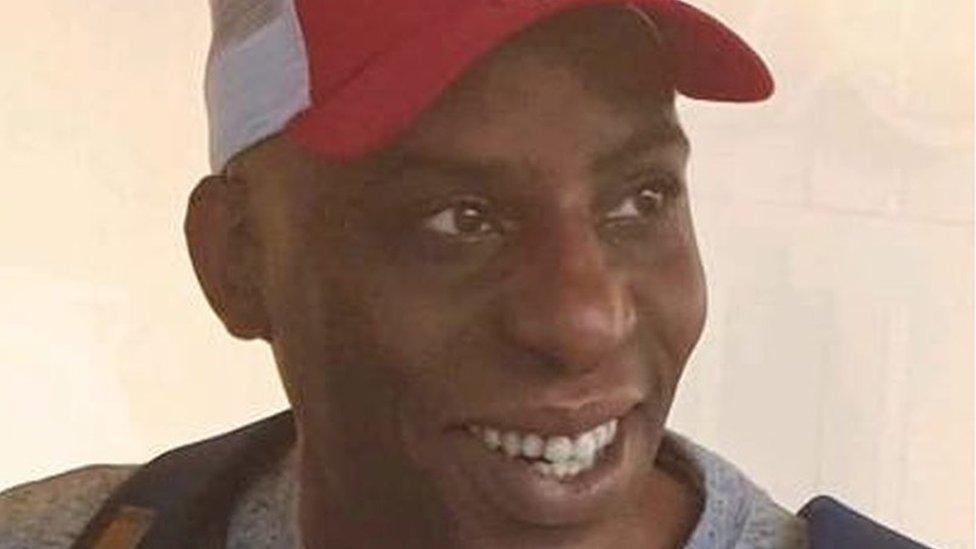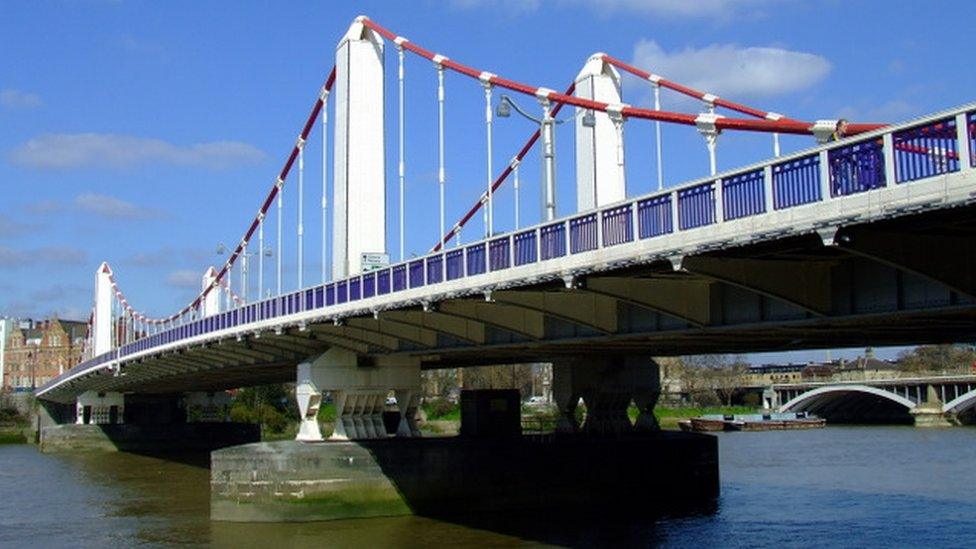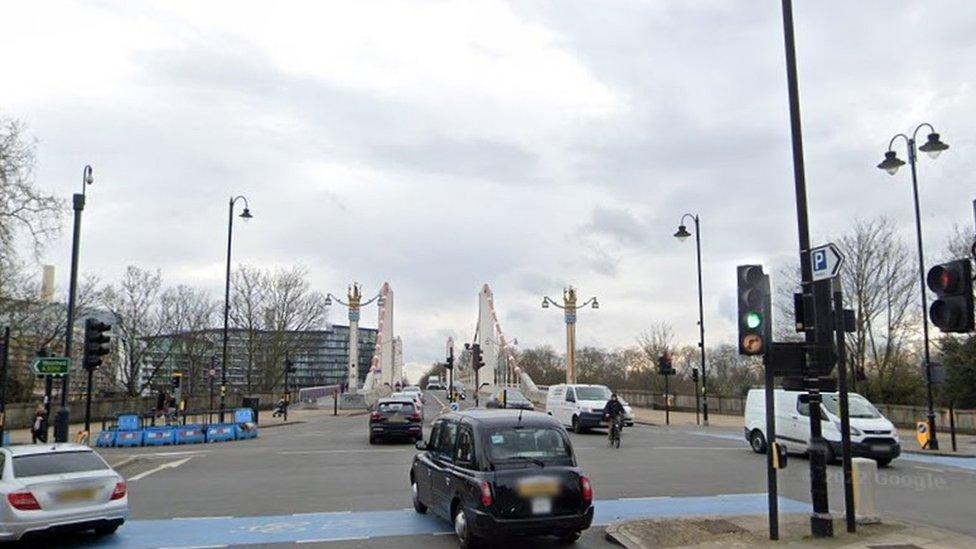Chelsea Bridge death: Tasering man was excessive force, family says
- Published

The family of Oladeji Adeyemi Omishore say the actions of the Metropolitan Police officers "amounted to excessive use of force"
Police were wrong to Taser a man on a London bridge and their "excessive and unnecessary force" contributed to his death, his family have said.
Oladeji Omishore was pulled from the River Thames after a confrontation with two Met officers, who were called when he was seen shouting and holding up a lighter on Chelsea Bridge on 4 June.
The 41-year-old faced struggles with his mental health, the family added.
The Independent Office for Police Conduct (IOPC) is investigating.
It said there was no indication any officers involved had breached police professional standards or committed a criminal offence, but added it kept "conduct matters constantly under review".
'We will fight'
Mr Omishore's family, who say that Taser use is disproportionately targeted at black mentally ill people, said: "We feel that the actions of the Metropolitan Police officer amounted to excessive use of force, and for this the officer must be held accountable.
"We cannot bring our beloved Deji back, but we will fight to ensure that this never happens again to another human being."
Mr Omishore was initially incorrectly reported to have been brandishing a screwdriver, but the object was later revealed to have been a plastic and metal firelighter.

Police say they were called to reports of a man who was shouting on Chelsea Bridge Road
The family said it was "incomprehensible" the officers involved were not being investigated for any professional misconduct or criminal charges.
"This means they are essentially being treated as witnesses to the investigation, not subjects of it," a statement read.
"They may not even be interviewed and their evidence might not be forcefully challenged until our lawyers get to cross-examine the officers at the inquest. This is dysfunctional.
"We understand that police are rarely suspended from duty following their involvement in contentious deaths in this country, and often do not even face conduct investigations.
"It is even rarer that they face criminal investigations. This does not look like a robust system capable of holding the police to account," the statement added.
Analyse evidence
An IOPC spokesperson said: "Our thoughts and sympathies remain with the family and friends of Oladeji Omishore.
"Our investigation into the circumstances surrounding his death is progressing well and our investigators are continuing to gather and analyse key evidence.
"At this early stage, we have no indication that any of the officers involved may have breached police professional standards or committed a criminal offence, although we keep conduct matters constantly under review.
"We continue to liaise with Mr Omishore's family to update them on our progress."

Follow BBC London on Facebook, external, Twitter , externaland Instagram, external. Send your story ideas to hellobbclondon@bbc.co.uk, external
- Published22 June 2022

- Published21 June 2022

- Published7 June 2022

- Published5 June 2022
